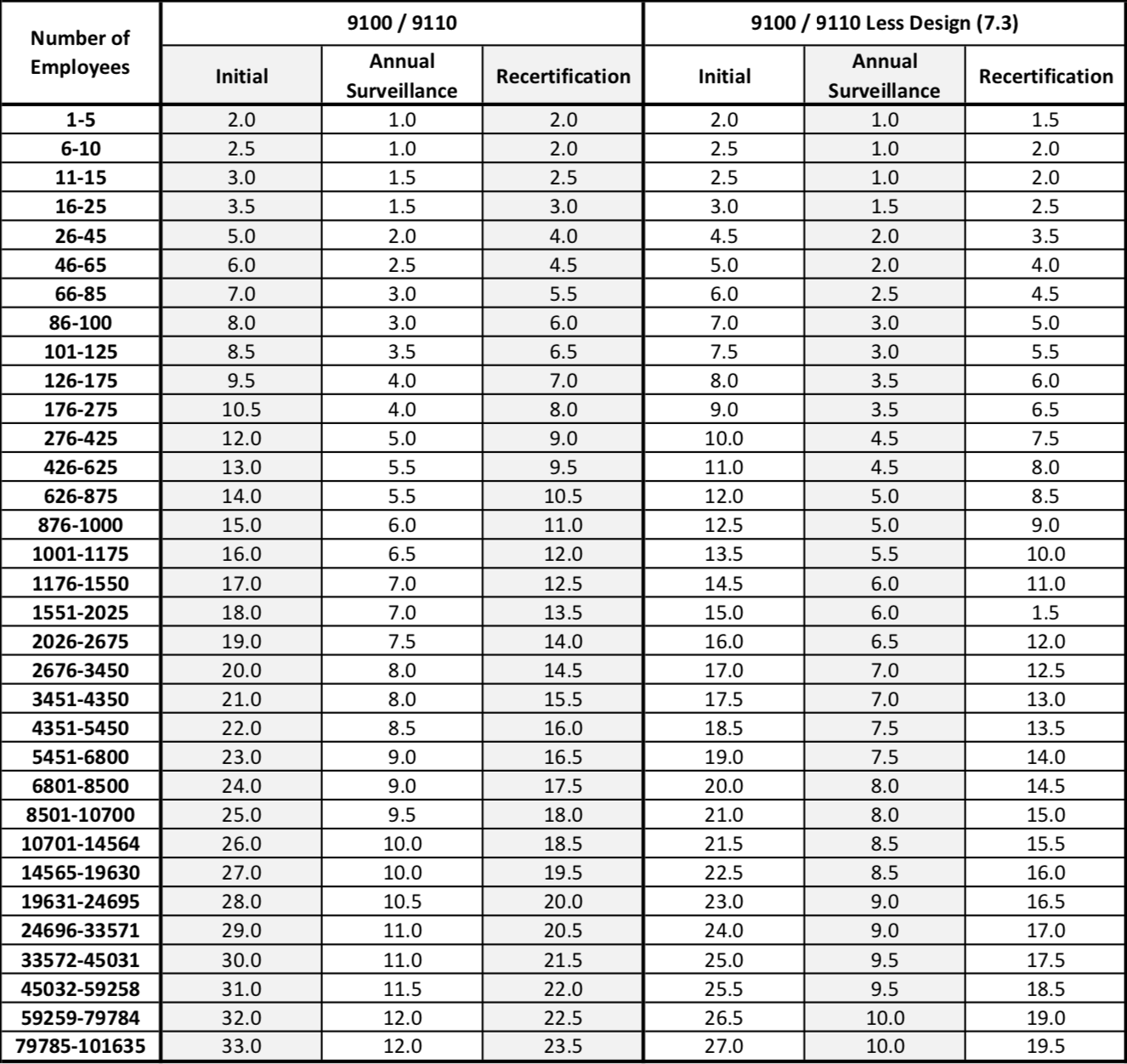AS9100 Calculating Audit Time
When you are ready to become AS9100 certified, your organization will need to be audited by an external, selected registrar otherwise known as a Certification Body (CB) to ensure that you have met the requirements of the standard. One of the most common questions we receive at standard stores is, “How long does it take for an audit?”. Audit time is determined by several factors including size, complexity, risk, and nature of an organization. An accredited registrar will use the guidelines and requirements set forth by the SAE AS9104A to consider these factors and determine AS9100 Audit days required to audit clients.
Receive Free Registrar Quotations here.

Figure 1: Audit time. Copyright SAE AS9104/1.
Additionally, each certification body will have their own process for determining AS9100D audit time, and this process must take into account all IAF requirements. Audit time may fluctuate between the initial, surveillance and re-certification audits. A certification body could determine after an initial audit that more or less time is required for the surveillance audit. Audit time may also include remote auditing techniques as well. This may be web meetings, teleconferencing and electronic verification of the client’s processes. This is fairly common for the first stage of an audit.
IAQG 9104- Requirements for ASD MS Certification Program
Accreditation bodies that are allowed to grant certification to Aerospace standards, including AS9100, must follow the SAE A9104- requirements for Aerospace Auditors Competency and Training Courses. We discuss who is able to grant certification in this article.
IAQG 9104-1 defines the basic requirements for managing the AQMS certification scheme. This scheme is oftentimes referred to as “ICOP scheme.” There are two other standards that provide specific requirements for defining the oversight process, auditor qualification and training requirements- 9104-2 and 9104-3. In all, these standards are commonly called ICOP certification management system trilogy.
For your reference, a new FAQ dated 20 November 2018 is now available.
AS9100 Rev C QMS certifications that did not complete transition to the AS9100 Rev D (2016) standard by September 15, 2018, are no longer valid. The certification will no longer be eligible for transition and an initial certification audit is now required.



